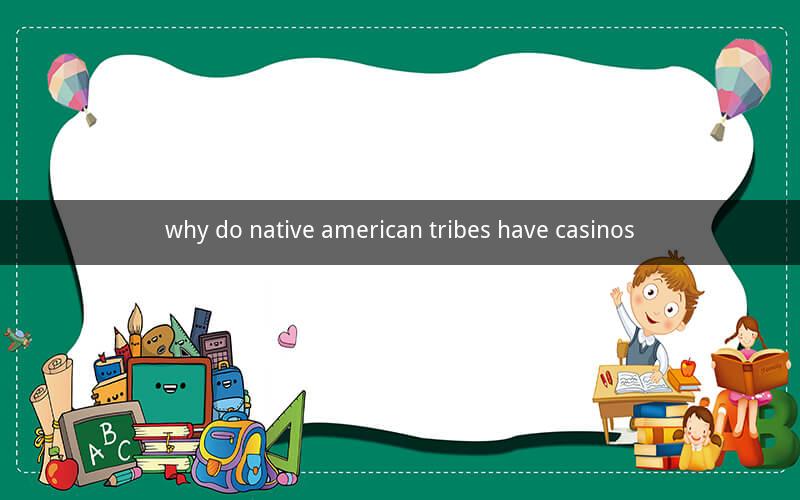
Table of Contents
1. Introduction to Native American Casinos
2. Historical Context of Casinos among Native American Tribes
3. Economic Benefits of Casinos for Native American Communities
4. Social and Cultural Impact of Casinos
5. Challenges and Controversies Surrounding Native American Casinos
6. The Role of Government in Regulating Native American Casinos
7. Conclusion
1. Introduction to Native American Casinos
Native American tribes have long been known for their rich cultural heritage and resilience. In recent years, one significant aspect of Native American life has gained considerable attention: the presence of casinos on tribal lands. These casinos, owned and operated by Native American tribes, have become a source of economic prosperity and a means for tribes to reclaim their sovereignty. This article explores why Native American tribes have casinos, examining their historical context, economic benefits, social and cultural impacts, challenges, and the role of government regulation.
2. Historical Context of Casinos among Native American Tribes
The concept of casinos among Native American tribes has historical roots that can be traced back to the early 20th century. In the 1930s, some tribes began to operate gambling operations as a means of survival, often in response to government policies that had devastated their economies. These early casinos were often small, family-owned businesses that provided a source of income for tribes struggling to adapt to the changing economic landscape.
It wasn't until the Indian Gaming Regulatory Act (IGRA) of 1988 that the gaming industry on tribal lands began to flourish. IGRA allowed tribes to establish casinos and regulate them on their own lands, provided they entered into a compact with the state in which the casino was located. This legislation paved the way for the growth of the Native American casino industry and has since had a profound impact on tribal economies.
3. Economic Benefits of Casinos for Native American Communities
One of the primary reasons Native American tribes have casinos is the economic benefits they bring. Casinos provide a significant source of revenue for tribes, which can be used to fund various initiatives, including infrastructure development, education, healthcare, and social services. Here are some key economic benefits:
- Job Creation: Casinos create jobs for tribal members and non-members alike, reducing unemployment rates and providing a stable income for families.
- Revenue Sharing: Revenue generated by casinos is often shared among tribal members, ensuring that the economic benefits reach a broad segment of the community.
- Infrastructure Development: Casinos can finance the construction and improvement of roads, schools, hospitals, and other essential infrastructure.
- Community Development: Casinos can stimulate economic development in surrounding areas, leading to increased tourism and business opportunities.
4. Social and Cultural Impact of Casinos
In addition to economic benefits, casinos have had a significant impact on Native American social and cultural life. While the social impact can be complex, some positive outcomes include:
- Cultural Revitalization: Casinos can provide a platform for the preservation and promotion of Native American culture, including traditional arts, crafts, and languages.
- Community Cohesion: Casinos can foster a sense of unity and pride within tribal communities, as they serve as a symbol of self-determination and economic success.
- Education and Training: Casinos can offer educational and vocational training programs, helping tribal members develop skills for the modern workforce.
However, some negative social impacts have also been observed, such as increased gambling addiction, crime rates, and social tensions. It's essential for tribes to address these challenges and implement responsible gaming policies.
5. Challenges and Controversies Surrounding Native American Casinos
Despite the economic and social benefits, Native American casinos have faced numerous challenges and controversies. Some of the most significant include:
- Regulatory Issues: The relationship between tribes and state governments over gaming regulations can be complex, leading to legal disputes and tensions.
- Opposition from Local Communities: Some communities have opposed the construction of casinos, citing concerns about increased crime, traffic, and environmental impact.
- Gambling Addiction: The presence of casinos has raised concerns about the potential for gambling addiction, particularly among vulnerable populations, such as youth and low-income individuals.
6. The Role of Government in Regulating Native American Casinos
The government plays a crucial role in regulating Native American casinos to ensure that they operate responsibly and comply with federal and state laws. This includes:
- Establishing Regulations: The government sets rules and guidelines for the operation of casinos, including the types of games allowed, the age of legal gambling, and responsible gaming policies.
- Monitoring Compliance: Government agencies oversee the operations of casinos to ensure that they comply with regulations and address any violations.
- Facilitating Compacts: The government facilitates the negotiation of compacts between tribes and states, outlining the terms and conditions for gaming operations on tribal lands.
7. Conclusion
Native American tribes have casinos for various reasons, including economic benefits, cultural revitalization, and self-determination. While casinos have brought about numerous positive outcomes, they have also presented challenges and controversies. The government's role in regulating these casinos is crucial in ensuring that they operate responsibly and provide a source of sustainable economic growth for Native American communities.
Questions and Answers
1. What is the historical context of casinos among Native American tribes?
2. What are the economic benefits of casinos for Native American communities?
3. How do casinos impact Native American social and cultural life?
4. What challenges and controversies surround Native American casinos?
5. What is the role of government in regulating Native American casinos?
6. How have casinos contributed to the economic development of Native American tribes?
7. What are the potential negative social impacts of casinos on Native American communities?
8. How can tribes address the challenges associated with gambling addiction?
9. What measures can be taken to ensure that casinos operate responsibly and comply with regulations?
10. How can the government and tribes work together to promote the long-term success of Native American casinos?